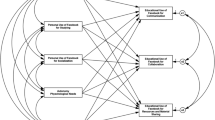Abstract
This paper describes how we used Facebook as a discussion tool in the instruction of a principles level economics course and reports empirical estimates of the affect of that use on learning outcomes. Social media as a tool for promoting classroom discussion has advantages and disadvantages. For example, its omnipresence and flat learning curve can promote academic discourse. However social media can promote nonacademic “chatting”, and its omnipresence means the user needs more than a passing knowledge of the privacy settings to have control of their “digital identity”. For a Principles of Microeconomics taught in 2011 we collected data, with permission from our institution’s Institutional Review Board, on student use of Facebook, academic and demographic characteristics, learning style preferences and learning outcomes. Our research hypothesis is that an empirical analysis will find a positive correlation between student in-class use of Facebook and learning outcomes. Among our findings are that students should receive more coaching on the use of privacy settings, and qualified evidence that there is a positive net effect on learning outcomes of using Facebook as a discussion tool.
Similar content being viewed by others
References
Anstine, J., & Skidmore, M. (2005). A small sample study of traditional and online courses with sample selection adjustment. Journal of Economic Education, 36(2), 107–127.
Boatman, K., Courtney, R., & Lee, W. (2008). See how they learn: the impact of faculty and student learning styles on student performance in introductory economics. American Economist, 52(1), 39–48.
Borg, M. O., & Shapiro, S. L. (1996). Personality type and student performance in principles of economics. Journal of Economic Education, 27(1), 3–25.
Bosch, T. E. (2009). Using online social networking for teaching and learning: Facebook use at the University of Cape Town. Communication, 35(2), September 2012-185-200. Retrieved from doi:10.1080/02500160903250648.
Chang, G. (2008). Facebook can be a factor in admissions, employment—Hopkins uses social sites in admissions decisions. The Johns-Hopkins Newsletter, 9/24, 11/11/2013.
Charkins, R. J., O’Toole, D. M., & Wetzel, J. N. (1985). Linking teacher and student learning styles with student achievement and attitudes. Journal of Economic Education.
Coates, D., & Humphreys, B. R. (2004). No significant distance between face-to-face and online instruction: evidence from principles of economics. Economics of Education Review, 23(6), 533–546.
Durham, Y., McKinnon, T., & Schulman, C. (2007). Classroom experiments: not just fun and games. Economic Inquiry, 45(1), 162–178. doi:10.1111/j.1465-7295.2006.00003.x.
Emerson, T. L., & Taylor, B. A. (2007). Journal of Economic Education, 38(1), 18–35.
Figlio, D. N., Rush, M., & Yin, L. (2010). Is it live or is it internet? Experimental estimates of the effects of online instruction on student learning. (Working Paper No. 16089). NBER Working Paper Series.
Gratton-Lavoie, C., & Stanley, D. (2009). Teaching and learning principles of microeconomics online: an empirical assessment. Journal of Economic Education, 40(1), 3–25.
Haefner, R. (2012). More employers screening candidates via social networking sites. Message posted to http://www.careerbuilder.com/Article/CB-1337-Getting-Hired-More-Employers-Screening-Candidates-via-Social-Networking-Sites.
Junco, R. (2012). The relationship between frequency of Facebook use, participation in Facebook activities, and student engagement. Computers and Education, 58(1), 162–171.
Kirschner, P. A., & Karpinski, A. C. (2010). Facebook and academic performance. Computers in Human Behavior, 26(6), 1237–1245.
Marburger, D. R. (2006). Does mandatory attendance improve student performance? Journal of Economic Education, 37, 148–155.
McBride, M. (2008). Classroom2.0: avoiding the creepy treehouse. Retrieved 9/20, 2012, from http://melaniemcbride.net/2008/04/26/creepy-treehouse-v-digital-literacies/.
Munoz, C., & Towner, T. (2009). How to use Facebook in the college classroom. In L. Gibson (Ed.), Proceedings of society for information technology & teacher education international conference 2009 (pp. 2623–2627). Chesapeake.
Pellizzari, P. (2012). Facebook as an academic learning platform: A case study of mathematics. (Working Paper No. 01). Ca’ Foscari University of Venice, Italy: Department of Economics Working Paper.
Stanca, L. (2010). The effects of attendance on academic performance: panel data evidence for introductory microeconomics. Journal of Economic Education, 37(3), 251–266.
VARK. (2013,). The VARK modalities. Message posted to http://www.vark-learn.com/english/page.asp?p=categories.
Author information
Authors and Affiliations
Corresponding author
Rights and permissions
About this article
Cite this article
Harmon, O.R., Alpert, W.T. & Histen, J. Online Discussion and Learning Outcomes. Int Adv Econ Res 20, 33–44 (2014). https://doi.org/10.1007/s11294-013-9453-9
Published:
Issue Date:
DOI: https://doi.org/10.1007/s11294-013-9453-9




